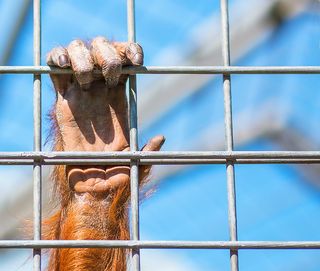Ethics and Morality
Revisiting Harry Harlow’s Legacy: Cruelty Towards Monkeys
Ethical considerations need to be extended to animals in scientific studies.
Posted July 18, 2016 Reviewed by Devon Frye

Having recently prepped a developmental psychology course that I hadn’t taught since graduate school, I have become reintroduced to this subfield of psychology. As I was reacquainting myself with the research regarding attachment theories, I became appalled to find very little scholarly backlash against Harry Harlow’s research on maternal deprivation that was done on rhesus monkeys. Almost as an aside, some scholarly articles identified the perceived cruelty of his research, but the ethics of his work gained minimal attention in comparison to the far-reaching implications and theory behind his research that was written about far more at length.
For those of you unfamiliar with Harlow’s work, his is listed in one mainstream online article under the illustrious “top ten” list of experiments in psychology that could never be done today for ethical reasons. The writer summarizes his work:
In the 1950s, Harry Harlow of the University of Wisconsin tested infant dependency using rhesus monkeys in his experiments rather than human babies. The monkey was removed from its actual mother, which was replaced with two “mothers,” one made of cloth and one made of wire. The cloth “mother” served no purpose other than its comforting feel whereas the wire “mother” fed the monkey through a bottle. The monkey spent the majority of his day next to the cloth “mother” and only around one hour a day next to the wire “mother,” despite the association between the wire model and food.
Harlow also used intimidation to prove that the monkey found the cloth “mother” to be superior. He would scare the infants and watch as the monkey ran towards the cloth model. Harlow also conducted experiments that isolated monkeys from other monkeys in order to show that those who did not learn to be part of the group at a young age were unable to assimilate and mate when they got older. (As reported by Danko, 2013, paras 11-12)
I would add that the isolation studies separated infant monkeys from their mothers almost immediately after birth, for up to the entire first year of the infant’s life. Harlow published multiple papers on these types of maternal deprivation studies, and actually won a national medal of science based on this work with monkeys, in addition to being named the president of the American Psychological Association (APA). The APA is the governing body for researchers in the field of psychology that is supposed to offer oversight of our work, which include whether ethical principles are being followed in our research. Ironically, this same governing body would eventually shut down Harlow’s work in the 1980s, on ethical grounds. There is evidence, however, to suggest that the University of Wisconsin resumed maternal deprivation more recently, in 2012 (see “Maternal Deprivation” overview by the Alliance for Animals).
Traditional courses in psychology have overlooked for far too long research done that violated ethical standards in favor of teaching the theories that the researchers demonstrated through their work—John B. Watson, for instance, remains revered within the field with little scrutiny of the ethics of his work (see my criticism on PT). Rather than celebrating these figures and marginalizing the outrageous ethical violations their work represented, they should be taught with significant scrutiny to their research and legacy. It should not be an aside to consider the cruelty of Harlow’s work; it should be central to any discussion of maternal deprivation in the context of a psychology course. Science should never trump human—or in this case, animal—rights and dignity.
It should not only be bloggers and mainstream sources online offering a harsh spotlight on the ethics of Harlow’s research. Academics should be on the front lines of condemning such work as well, for they represent a betrayal of the basic notions of dignity and decency we should all be upholding in our research, especially in the case of vulnerable populations in our samples—such as helpless animals or young children.
References
Danko, M. (2013, September 20). 10 Famous Psychological Experiments That Could Never Happen Today. Mental_floss. Retrieved on July 17th, 2016


